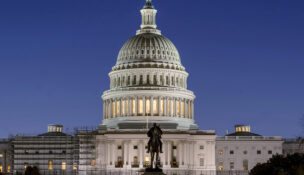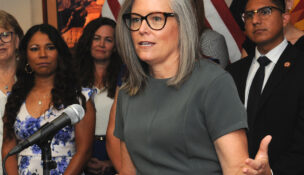Federal prosecutor’s office will closely watch Tuesday’s election
Howard Fischer, Capitol Media Services//August 1, 2022//[read_meter]
Federal prosecutor’s office will closely watch Tuesday’s election
Howard Fischer, Capitol Media Services//August 1, 2022//[read_meter]
The top federal prosecutor in Arizona says his office will be watching Tuesday’s election to ensure there are no violations of the right of individuals to vote. But Gary Restaino,...
No tags for this post.

















